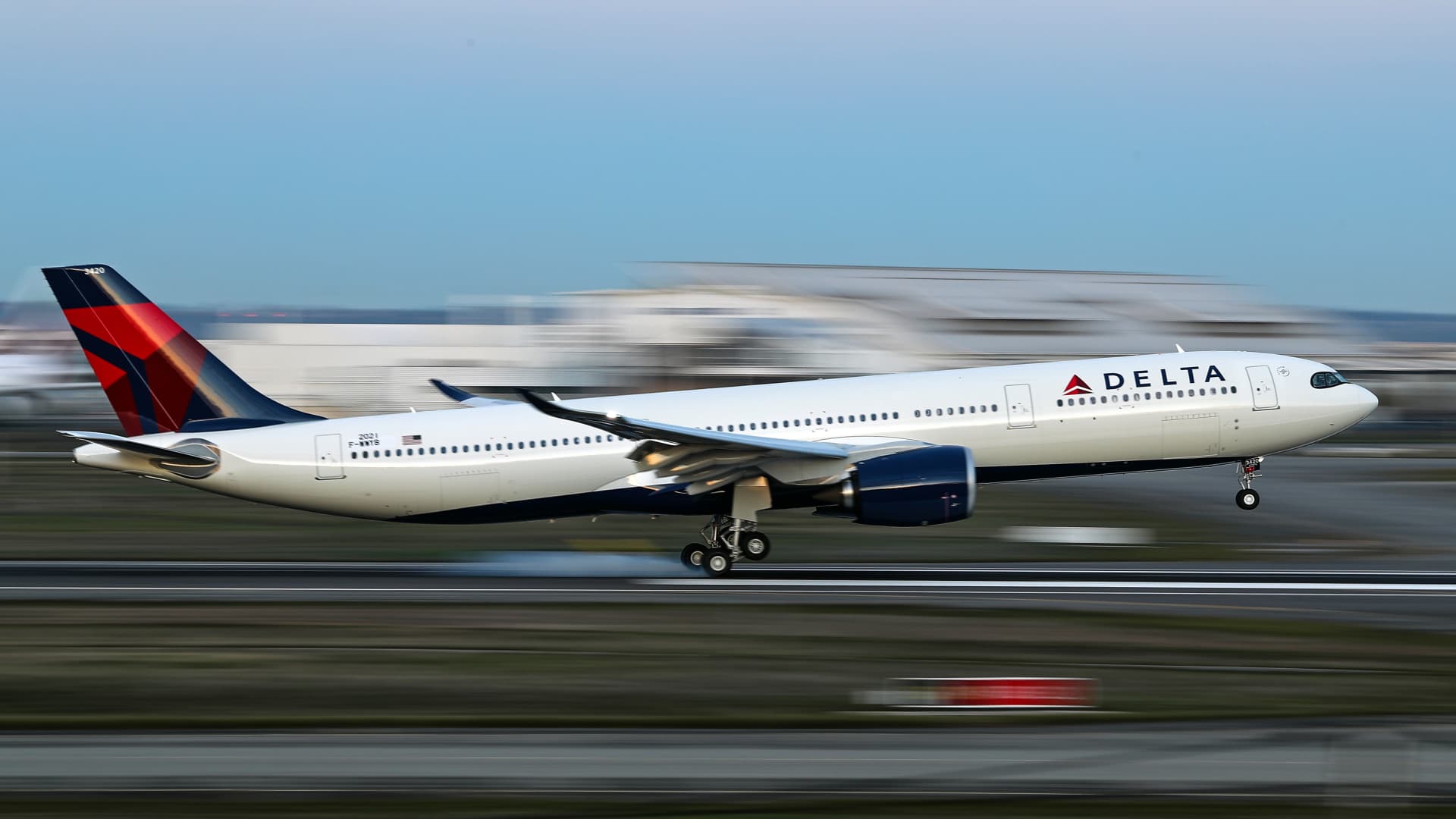Delta Air Lines on Thursday forecast record revenue for the third quarter thanks to booming summer travel demand, but its projection fell short of analysts’ estimates as carriers discounted fares after expanding flights.
In the current quarter, Delta expects sales to rise no more than 4%, below the 5.8% growth analysts polled by LSEG estimated, and it forecast adjusted earnings per share of $1.70 to $2 a share, short of the $2.05 a share analysts estimated.
Shares of Delta were down more than 5% in mid-afternoon trading. Other major U.S. airlines were also trading lower.
The Atlanta-based carrier on Thursday kicked off an airline earnings season marked by packed planes but profits under pressure as costs rise and increased capacity weighs on fares. The Transportation Security Administration said it screened more than 3 million people for the first time on Sunday at U.S. airports.
Delta is a standout in the U.S. airline industry as the most profitable carrier, and Thursday’s report is a sign that competitors, particularly those focused on the oversupplied U.S. air travel market, could struggle this summer.
Rival United Airlines, which is scheduled to report results next Wednesday is trying to catch up to Delta’s profitability, and both carriers have been racing to add more premium seats that fetch more revenue from consumers. Analysts have the most buy ratings on Delta and United compared with other U.S. airlines.
Here’s how Delta performed in the second quarter, compared with Wall Street expectations based on consensus estimates from LSEG:
- Adjusted earnings per share:Â $2.36 vs. $2.36 expected
- Adjusted revenue:Â $15.41 billion vs. $15.45 billion expected
For the three months ended June 30, Delta brought in adjusted revenue of $15.4 billion, up 5.4% from last year and shy of Wall Street estimates. Net income dropped almost 30% from a year ago to $1.31 billion, or $2.01 a share, with operating expenses up 10% from last year. Adjusting for one-time items, Delta reported earnings of $1.53 billion, or $2.36 a share, in line with analysts’ estimates.
“The second quarter was a really strong performance,” CEO Ed Bastian said in an interview. “What you see happening is the impact in the domestic marketplace to the lower fare discounting that’s been going on this quarter.”
Airfare in June was 5.1% lower than a year earlier and 5.7% lower than the month prior, according to Thursday’s latest read on consumer prices, which showed easing inflation.
Bastian said lower industry capacity in the U.S. toward the end of the summer will better match up with demand. Delta said that corporate travel continues to increase and that most customers expect to maintain or grow their corporate travel spending this quarter and after.
The carrier expects to grow its flying capacity 5% to 6% in the third quarter compared with last year, a slower clip than the 8% it expanded in the second quarter. Bastian told CNBC that he expects Delta’s unit revenues to turn positive over last year in September.
Revenue from international travel has been strong since the pandemic waned, though airlines have expanded schedules, meaning more competition for customers. Unit revenue for trans-Atlantic flights will take a 1-percentage point hit from the Summer Olympics in Paris, Delta said. The impact is equal to about $100 million from June through August, Bastian told CNBC. The airline has more capacity to the French capital than rivals through its partnership with Air France.
Delta reported growth in premium tickets, like those for first class, jumped 10% in the second quarter to $5.6 billion, while revenue from coach tickets rose 0.3% to about $6.7 billion. Its lucrative American Express credit card deal brought in $1.9 billion, up about 9% from last year.
Bastian said that Delta is “fairly well insulated” from industry overcapacity because it draws so much of its revenue from premium seats and other sources rather than standard coach tickets.
Delta reiterated its full-year earnings forecast of $6 to $7 a share and said it still expects to generate free cash flow of as much as $4 billion.
Disclosure: CNBC parent NBCUniversal owns NBC Sports and NBC Olympics. NBC Olympics is the U.S. broadcast rights holder to all Summer and Winter Games through 2032.
Read the original article here



